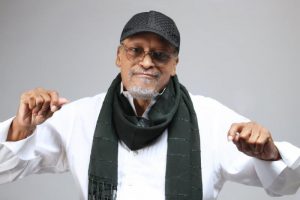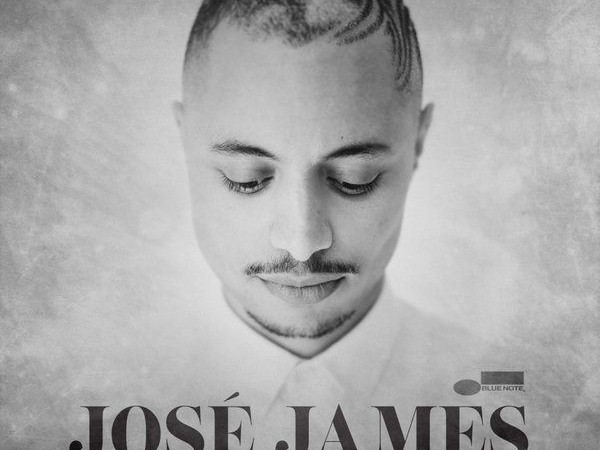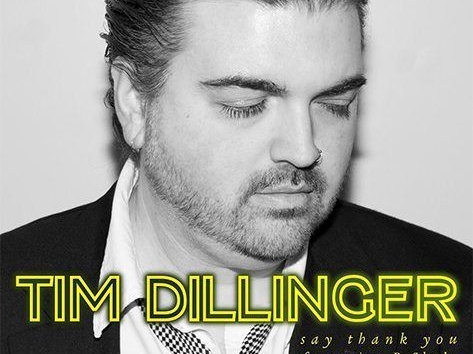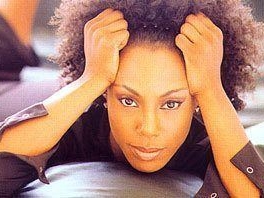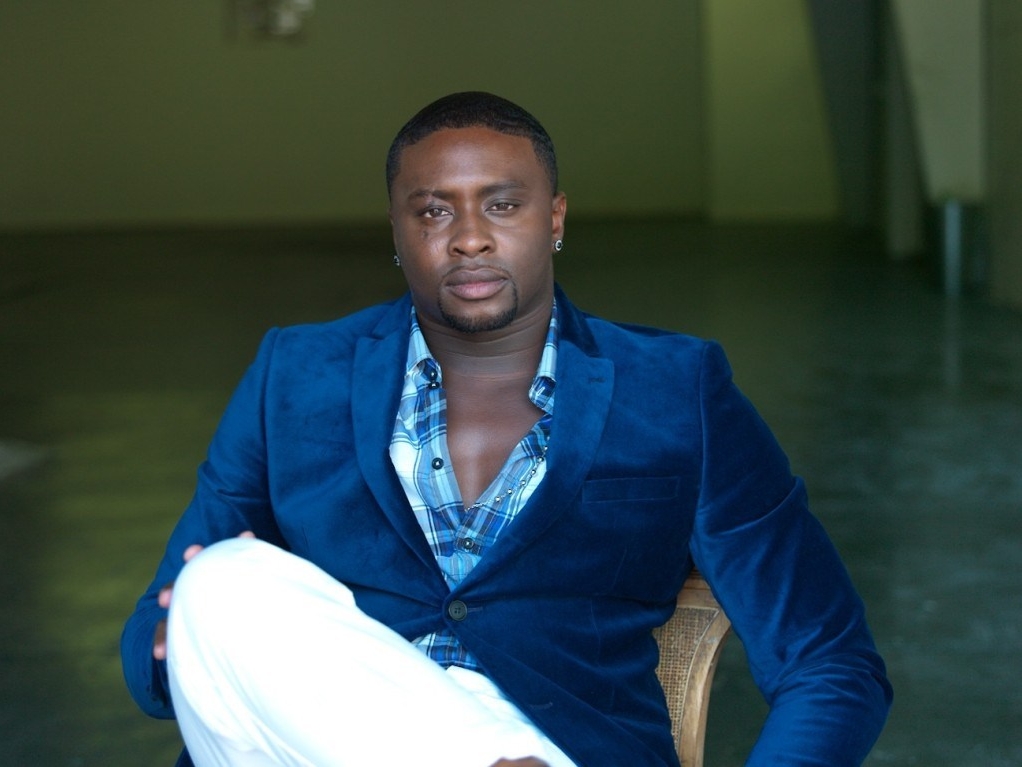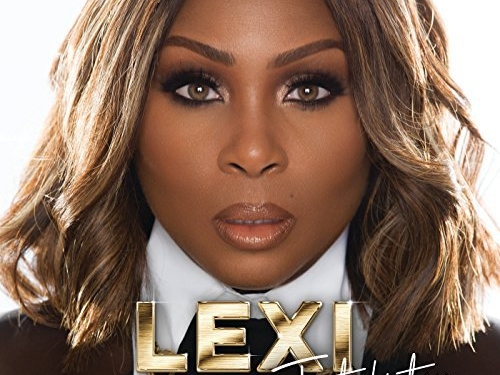Grown Folks Music spoke with ’80s and ’90s musician, songwriter, composer and producer James Mtume. Mtume has a long career in the music industry. He played with the great Miles Davis in the ’70s and was behind songs for Roberta Flack, Stephanie Mills and Mary J Blige. He also composed the score for the slick, ’90s show New York Undercover and of course he gave us the timeless, and often-sampled slow jam “Juicy Fruit.” Shockingly, that song was almost never heard on radio. Read why in our conversation.
Bridging the Gap
GFM: Our motto around here at Grown Folks Music is “Bridging the Gap”. At our core, we represent old-school music, but we also introduce and highlight new/younger artists and it’s been very hard to get some of the Grown Folks to even consider it. What I like about you is that you seem to be all about bridging the gap between generations and styles of music. Can you talk about that?
JM: I think I would be in total agreement. I’ve always had problems with a lot people from my generation who have not been as available to young people to what I call extend the music, the ideas and the understanding. You referred to it as bridging the gap, or connecting the bridge. You can’t move forward without a knowledge of where everything came from. Until that music is shared… or that information… or that knowledge… we’re stuck. You have to share because what happens is if you don’t there’s a break down in what I call the cultural continuity. Now, what do I mean by that? You find young people who are just talking to each other and old people who are just talking to old people. I always say, ‘I don’t talk to old people. I’m already old.’ [laughs] You only learn by sharing the generational information. That’s the same way I got it. My background… or as I prefer to say… my front ground… is jazz. I played with all the greats. My mentor and teacher was the great Miles Davis. I played with Miles Davis for five years. Nobody was more progressive than him. I always understood in order to grow you’ve got to expand.
You have to remember there was a time when hip hop was coming along there was a very angry period that was happening with older blacks and younger blacks. Older blacks were saying, ‘this ain’t music.’ Then younger blacks were rightfully self defending because every generation creates its own music. No generation should tell another generation what’s not hip, because they have to define it. But, that break down had a lot to do with the break down in our culture between older and and younger blacks. Music just became the vehicle to express it through. A lot of older people creating music felt they were pretty much cast away.
The record companies took advantage of that too. If you look around, most of the older artists couldn’t get any deals. That doesn’t happen with white artists. older white artists exist along with the younger white artists. But what happened with black music [is] they threw all of the older artists out. There was a bitterness. Fortunately, I never suffered from that bitterness because I was always around young people and with New York Undercover I worked with a lot of them. That’s where I worked with Mary [J. Blige], D’Angelo, 112 and all those groups. So, there was anger. But, whatever anger was then it needs to be put away now. Right now we definitely need the generations to be communicating. Now you have a younger generation that dogs the original people in hip hop. Here young rappers are [saying], ‘Public Enemy ain’t nothing, or KRS-One ain’t nothing.’ I hear that from young guys. It’s something that needs to end. You can’t advance the music if you don’t advance the conversation.
Technology Advances Music
GFM: Speaking of Miles Davis. We shared a clip on our website a few years ago of you speaking about Miles Davis. It was sort of a debate with a music critic. But, one of the things that struck me that you said is that we embrace technology it seems in many other areas, but when it comes to music we seem hesitant. Can you talk about technology and how it’s always been a part, but now it’s a huge part of how these young artist are making music and they’re running with it. What’s your thoughts on that?
JM: That was very interesting that you vibed in on that because I think that was probably one of the most important points I tried to make in that debate. What that point was in every thing in life we utilize technology. We don’t walk. We drive cars now. Then we had planes. Now you’ve got spaceships. Just think of it, in another 20 years you’ll be able to catch a spaceship to Mars. I think I used the example of we use electric lights. Well before the light bulb, when the sun goes down that was it. When it comes to music, I think people… they call themselves purists… I don’t believe in the word pure…. music has to be a part of the technological advancement of the age it comes in. For example, the 440 tuned piano… the modern piano as we know it… when that was created that was like 4 or 500 years ago. But, that was like the synthesizer of its time. So, we have to understand [that] music has to progress along with society. You don’t use a pencil and paper. You don’t use a typewriter. What do you use? Most people use a computer. Now, if you choose to write long hand that’s called preference, but dealing with what the mode of communication is today– that’s called practice. That’s the reality of today, so music should be involved in technology.
That was one of the things I learned with Miles. When I joined Miles it was in the On The Corner band. I was with him from ’71 to ’76. I began to understand and digest how technology should and could be used to advance music. If you just wanna play acoustic music, that’s fine. Again, that’s your preference. But, don’t dog electronic music. You have a lot of “jazz purists” who said if you played electric the sound was not pure. There’s no such thing. Sound is sound. It’s pure in whatever form it comes in.
GFM: What do you think of where it is now and what they’re doing now. Have you utilized any of the tools now that some of the young producers are using? Have you started incorporating anything that they’re doing now?
JM: When you say now, you’ve gotta remember I’m 71. In terms of electronic music I started dealing with it when I got with Miles Davis. Before that I was writing and creating acoustic music… acoustic jazz. Once I got with Miles, I began to evolve my ears. Obviously, I used synthesizers in all the music that I created from “The Closer I Get To You”, to all the music you heard on New York Undercover, Showtime and Stephanie (Mills).
So yeah, I’m a firm believer. But it’s not just using it. It’s how you use it. Technology… I always say… it’s about you using it and not allowing it to use you. A good example of that I always tell people is “Juicy Fruit”. That’s not a drummer on that track. That was probably the first time anybody had used, from R&B, a drum machine on an R&B song. “Juicy” was ’83, so I was dealing with technology back then… you know… “You, Me & He”. I’m very much into sound.
One of the things I think could be done a little more is younger artists and younger producers experimenting more with sound. But, you gotta know a little something about music, Sister. You just can’t say, ‘I’m going to walk in and put one of them programs on that’s already in the computer.’ You play one note, two notes, three notes and it gives you the chord. No. I always tell young people this: ‘If I want to be a lawyer I should know something about what? Law. If I want to be an electrician I should know something about electricity. If I want to be a doctor I should know something about medicine. So, why do you think you wanna be a musician, but you don’t think you need to know nothing about music?’ That doesn’t make sense.
It’s A Wonderful Time to Be an Artist
GFM: I guess I’m speaking more about the way these younger artists now… not just in terms of sound, but the way that they are self-producing music, the way that they are distributing music. They’re using the internet, social media and there are even apps and tools on the phone. They’re producing songs in a day and putting them out right to their followers and supporters. They’ve come up with a whole new system. Have you tied into those aspects of technology in music?
JM: Actually, I’m working on a project now– it’s the first project I’ve worked on in maybe 20 years. We’re getting ready to do a whole new project on Tawatha Agee, who was our lead singer. She sounds great. I’m hooking up with a young brother named Ohene [Savant]. He’s out of Philadelphia. He lives in Atlanta now, but we’re gonna just use social media. You’ve got to remember that back in our day, the only way you could get a record happening was to get it on radio. If you wasn’t on the radio, you wasn’t on. How would anybody know that the song was out? I think today, [with] the access that young artists have with social media it’s a wonderful time to be an artist because you don’t have to go through all the b.s. of going through an A&R person who probably don’t even know as much as you do. For the most part record companies are dinosaurs now. Now you have somebody– a young sister or a young brother– who’s somewhere in their house and they’ve got the stuff hooked up so they can… like you said… create their music, press send and it goes all over the world. You don’t need a middle man. I think it’s great.
GFM: Are you talking about Ohene Savant? We’ve shared some of his stuff on our Facebook page. He’s brilliant. I’m excited about that. Talk about that please. How you came to meet him… did he reach out to you? Talk about that.
JM: I’ve been associated with him for the last 15 years at least. He came to me through a friend who was telling me about of this young brother out of Philadelphia who raps. When he told me this 15 years ago he said, ‘And he plays!’ Now, I know that sounds like, ‘Well yeah, of course he plays if he’s a musician.’ But, back then it was almost unheard of. If you think about it– most of the rappers didn’t play any music. But, this is a guy who was playing, rapping and he can do it in so many different ways. He’s brilliant and he plays several instruments. We’re very, very close. I look at him as like my musical son. We were talking about something we could do together and this is what came up. I think Ohene is one of the most brilliant artists out there. He’s a perfect example of somebody who used social media to advance the ability for people to hear the music. He’s not signed to nobody. He creates, sells and pushes his music through modern-day technology. I think it’s a great thing.
Songs We Almost Didn’t Hear
GFM: I heard you say that when you started producing, some of it had to do with intuition. In your opinion, what does it take to make hit record?
JM: Well, first of all, it takes a lot of things. A lot more things back then than it does today. What I mean by that is remember, when you have to go through a record company you’ve done your job when you wrote, produced and mixed the record and then you take it to a record company. That’s not always the end all and be all. You get it to a record company and then they make certain decisions.
I’ll give you an example of two songs that I wrote that almost never were allowed to get to radio. The first one was “The Closer I Get To You” with Roberta Flack and Donny Hathaway. Roberta Flack invited me to what we used to have back then called a listening session. That’s when the executives would come to the studio and they would hear the whole album. They’d sit there and listen and then they gave an opinion. I’ll never forget Roberta invited me, and the president of Atlantic Records was a guy named Ahmet Ertegun. He came in and he listened to the whole album in the studio. He turned around to her… now I’m sitting there… and he says, “I like everything but that song, “The Closer I Get To You”. He said it was boring and repetitious. I’ll never forget it. Roberta pretty much had to argue to keep it on the record. I’ll always thank Roberta Flack for that. She fought to keep “The Closer” on the record. Here’s the killer… the next thing he said [was] ‘Yeah, but it’ll never be a single.’ [laughs] Now, this is the president of the record company– Atlantic Records. “The Closer I Get To You” was not the first single off of that album Blue Lights In The Basement. You can’t even tell me what the first one was. You’re young, but anyone who remembers that record– that was not the first single. They put out another song. What happened was when they dropped the album the radio and the DJs all went on “The Closer I Get To You”, and they forced it to be a single.
The next example I’m going to give you is “Juicy Fruit”. When I took that to Epic Records they did not want to release it. They said it was too slow and they were concerned about the risque element of the lyrics. I had to fight. Compared to today, those lyrics are light but back then they were like, ‘Oh my God.’ I had to argue with them. They said, ‘Okay, we’re gonna release it, but we’re not gonna release for daytime play.’ They only released it for what they called quiet-storm format– which was like from twelve to three, or twelve to five in the morning. What happened is after they let it out just for quiet storm they got so many calls and requests from radio stations around the country who said, ‘Are y’all crazy? We need this record to be on for daytime.’ “Juicy Fruit” became available for daytime and the rest was history. But, initially they did not want to release it. I’m just giving you experiences of mine. Imagine how many more stories there are like that.
GFM: Those are great stories. I have a quick question about “Juicy Fruit” then, and the daytime/night time thing. Was there a daytime radio edit and a nighttime edit of the song?
JM: No, there wasn’t. It’s kinda crazy just to hear that, right? . They were so concerned and so scared of one lyric in the song, but also, they felt it was too slow. We’re talking about 1983 and back then people were talking about something they call beats per minute. Disco was around and all of these other things. If you listen to “Juicy”, the time of “Juicy” was very slowed down from the rest of the songs that were happening. But, that’s just how I felt. I never wrote from my head. I only wrote from my heart.
This shows you two examples of huge records. I’m just one guy telling you that I’ve got two examples of records that were almost never released. Both of them were received with wild enthusiasm from listeners. People embraced it– especially “Juicy”– “Juicy” was a game changer. There was never a song quite like that because of the beat.
GFM: Juicy was and is a game changer and the biggest ‘I told you so’ to everybody is the samples of that song now. That song will live on long after.
JM: [laughs] Long after me.
GFM: It’s the gift that keeps on giving. It’s the biggest ‘I told you so,’ and it does transcend the generations so that’s pretty cool.
JM: With all due respect, I can’t have that conversation without acknowledging Biggie. When Biggie did it– that’s what transferred it into a new generation. I remember when I met Biggie. I was in Andre Harrell’s office. I was working with Andre because at that time I was doing all the music for a television show he was involved with called New York Undercover. I was composing all of the music for that. I was at a meeting with him and Andre said, ‘Oh, by the way, Puffy said he needs to talk to you.’ After Andre and I were finished, Puffy came in and said, ‘Hey what’s up, man,’ because we knew each other. Puff said, ‘”Tumes”, I got this young artist I want you to meet. His name is Biggie and we wanna sample “Juicy Fruit”.’ I said, ‘Sure man.’ Puff came in and he introduced Biggie. We hugged. It was beautiful, man. Obviously when Biggie did “Juicy” that transferred and then all these other samples came out of that. To me, one of my favorite sample usages was the Keyshia Cole version with her and Missy [Elliott].
I’ve been very pleased to know that the music spans generations. We’ve got over 70 samples for “Juicy” As a matter of fact, Chris Brown and R. Kelly just did a sample of “Juicy” called “Juicy Booty”. The trunk has a lot of branches.
GFM: That’s a perfect way to put it. Who do you like out here? Who do like out here right now, today– what young artists?
JM: Aww man, Kendrick Lamar… come on. I don’t think it’s anybody close. When I first heard him I said, ‘Oh my God.’ Then, I read an interview that he did and then everything made sense to me why I was so attracted to his music. He said when he was growing up, all his parents played in the house was Miles Davis and John Coltrane. He said he was greatly influenced by jazz. Then I said, ‘Oh I get it.’ That’s why he’s so open to experimenting with sounds. When I got his album… it was another young brother that I had done some work with named Bilal… he was doing background on lot of the tracks. I was with him on “Soul Sister”.
GFM: What is your definition of Grown Folks Music?
JM: Grown folks music is music that you appreciate, respect and nourish. What I mean by that is grown folks music is music that is not an appetizer. It’s a main meal. So much music out here is what I call mac music– it’s like a hamburger. It comes and it goes. Real music survives time. I listen to a lot of jazz– [John] Coltrane and Miles [Davis]. If you put on “Kind Of Blue” from Miles Davis, or John Coltrane’s “A Love Supreme”… those records were recorded 50-60 years ago. You can put them on and when you listen, Sister, it’s like those guys went into the studio yesterday. Grown folks music is timeless.
RELATED POSTS
August 16, 2013
GFM Spotlight Interview: Tim Dillinger
June 17, 2011

